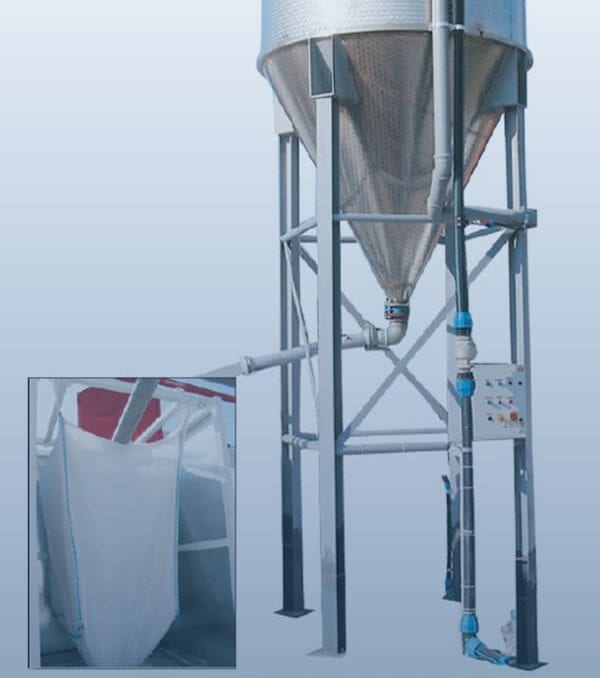A Big Bag Plant is an ideal solution for smaller stone processing shops and operations requiring cost-effective, compact wastewater and sludge treatment. Designed by Matec, these plants handle sludge flows of up to 400-500 l/min while maintaining the same quality standards and achieving the same clarification levels as larger industrial plants.
The modular design of Big Bag Plants allows for seamless integration of additional Matec equipment, such as filter presses, ensuring scalability to meet evolving operational needs.
Big Bag Plants are equipped with advanced systems designed for wastewater purification and sludge dewatering:
Big Bag Plants are versatile and capable of adapting to lower-volume materials, offering a simpler and more compact wastewater treatment solution.

Big Bag Plants are particularly beneficial for:
Matec’s Big Bag Plants are engineered to provide advanced wastewater treatment without the high costs or complexity of larger systems. With the ability to integrate seamlessly into existing processes and the option to upgrade as operations grow, these plants offer unmatched versatility, reliability, and efficiency.
Contact ChemREADY today to learn how Matec Big Bag Plants can optimize your water treatment processes and help you reclaim resources effectively.
A Big Bag Plant is a compact wastewater treatment system designed for small to medium operations. It purifies water and dewaters sludge using filtering bags, offering cost-effective and scalable solutions.
The plant filters sludge directly into specialized Big Bags, which further dewater the material for easier handling and disposal.
Big Bag Plants save costs by reclaiming up to 85% of water, simplifying sludge management, and eliminating the need for a filter press.
Yes, by integrating ChemREADY chemicals, Big Bag Plants can efficiently process low solids slurries, producing compacted solids and clean, reusable water.
Yes, Big Bag Plants are modular and can be upgraded to include additional Matec equipment like filter presses, allowing for phased operational growth.